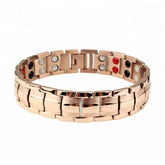Pregnancy is a time of protection—and that includes guarding against the unseen. One growing concern? EMF exposure. From smartphones to Wi-Fi routers, we’re surrounded by electromagnetic fields (EMFs) daily. But what are the real EMF effects on pregnancy?
Emerging research suggests that prolonged EMF exposure could affect fetal development, increase stress levels, and even disrupt sleep cycles—raising a red flag for parents-to-be.
In this article, we’ll unpack the latest science on EMF and pregnancy, bust common myths, and share practical ways to reduce exposure. If you're expecting, now’s the time to stay informed and take control of your tech environment.
How Does EMF Exposure Affect Pregnant Women and Unborn Children?

When you're pregnant, every decision matters, and that includes how much exposure you have to electromagnetic fields (EMFs). These invisible fields are all around us, from cell phones to power lines, and many wonder if they pose a risk during pregnancy.
Potential Health Concerns
EMF exposure during pregnancy is still a topic of research, but there are concerns that too much exposure could affect both the mother and the unborn child.
Some studies suggest that EMFs might have a negative impact on fetal development, especially in the early stages when the baby’s organs are forming.
This could lead to problems like low birth weight or delays in development. While the research isn’t conclusive, many experts recommend reducing exposure as a precaution.
Key Concerns from Research
Recent studies on EMF effects on pregnancy have raised some important points. Some suggest that high levels of EMF exposure could increase the risk of miscarriage, though this isn’t proven.
There are also concerns that Cell Phone radiation might affect the baby in the womb, with some research indicating that prolonged exposure could cause developmental issues. Additionally, both mothers and babies might experience negative effects, like headaches or sleep problems, due to EMF exposure.
Research Studies on EMF Exposure and Pregnancy: What We Know So Far
As the debate over the safety of EMF exposure during pregnancy continues, various studies have explored how these fields might affect both the mother and baby. The findings are still mixed, but there are key takeaways that can help expecting parents make informed decisions.
Most studies agree that excessive EMF exposure can have potential risks for pregnancy. Some research suggests a link between high levels of EMF exposure and adverse pregnancy outcomes like miscarriage, fetal growth issues, or developmental delays.
However, not all studies have found the same results, which makes it difficult to draw clear conclusions. In general, the more we learn, the more we see that the timing and level of exposure matter.
Long-Term Effects (Trimester Breakdown)
EMF exposure can affect different stages of pregnancy in unique ways. In the second trimester, the baby’s organs are developing, and excessive EMF exposure might interfere with this process, potentially leading to issues like low birth weight or developmental delays.
As we move into the third trimester, the baby’s growth is rapid, and increased exposure to EMFs might affect normal development, possibly leading to complications like premature birth or underdeveloped organs.
Some studies on EMF effects on pregnancy second trimester show that the risk is particularly high during this time, when the baby’s body is becoming more sensitive to environmental factors.
In the third trimester, the baby is growing quickly, and continued exposure could affect this process, making it essential to limit EMF exposure as much as possible.
Are EMFs Linked to Miscarriage?
Pregnancy is a time of careful consideration, and many expectant mothers wonder if their everyday exposure to EMF radiation could pose a risk. A study by Kaiser Permanente followed 913 women to explore this question.
Researchers tracked their EMF exposure over a 24-hour period using special meters, and participants logged their daily activities. The results weren’t comforting. Women with high EMF exposure were nearly three times as likely to experience a miscarriage compared to those with lower exposure.
This finding is consistent with earlier research. In 2016, a Chinese study exposed female mice to Extremely Low Frequency (ELF) magnetic fields, which led to 60% fewer offspring, spontaneous abortions, and deformities.
Similarly, a 2013 study found higher EMF levels in the homes of women who miscarried.
Interestingly, the Kaiser study showed no clear relationship between higher exposure and increased risk. Once a certain threshold of exposure was reached, further increases didn’t seem to raise the risk of miscarriage.
The study also revealed that the key factor wasn’t the source of the EMF radiation, but the consistency of exposure. For example, using a laptop on your lap all day may be riskier than briefly driving past a cell tower.
In summary, while the research suggests a link between EMF exposure and miscarriage, the exact risk remains unclear. Consistency of exposure seems to be the bigger factor to consider.
Practical Tips for Minimizing EMF Exposure During Pregnancy
When it comes to EMF and pregnancy, protecting your baby starts with awareness. Expecting mothers are rightfully cautious—minimizing anything that could pose a risk is essential. Reducing EMF exposure during pregnancy is a smart step toward a safer environment for your developing child.
Here are simple, practical tips to help you lower EMF levels and support a healthier pregnancy.
Be Extra Cautious During the First Trimester
The first trimester is when your baby’s development is most vulnerable, and about 99% of miscarriages occur in the first 14 weeks.
Try to limit your exposure to EMF radiation during this critical period. If it’s difficult to avoid devices for the entire pregnancy, focus on being extra careful in the beginning stages.
Cut Back on Device Usage
Laptops, tablets, and mobile phones are common sources of EMF radiation. If you’re pregnant or planning to conceive, try to reduce your use of these devices as much as possible. The less time you spend on them, the better.
Keep Devices Away from Your Body
If you must use electronic devices, avoid placing them directly on your lap or near your belly. Keeping them at a distance can help limit your exposure to EMF radiation.
Evaluate Your Everyday Electronics
Take a look at the devices you use daily—what might be emitting EMF radiation? Things like electronic alarm clocks, electric blankets, and older TVs can all produce EMFs.
Even baby monitors emit radiation! When you need to use one after your baby arrives, try placing it as far from your child as possible, and remember to turn it off when not in use.
Don’t Stress Too Much
Stress can be harmful to both you and your baby, so try not to worry excessively about EMF exposure. Focus on what you can control and take reasonable precautions without letting fear take over.
Consider EMF Protection Products
There are products like stickers, designed to reduce EMF exposure. These have been lab-tested for effectiveness and could be a good option to consider during your pregnancy.
Conclusion
While research suggests potential risks of EMF exposure during pregnancy, especially in relation to miscarriage and fetal development, the evidence is not definitive. The key appears to be the consistency of exposure rather than the level or specific source.
Expectant mothers should take practical steps to minimize EMF exposure, particularly during critical stages of pregnancy.
While further studies are needed, being mindful of your environment and making small changes can help reduce potential risks and offer peace of mind during this important time.
FAQs
How does EMF affect the baby?
EMF exposure may potentially affect fetal development, with some studies linking it to risks like miscarriage, developmental delays, and DNA damage. However, the evidence is still inconclusive.
Is mobile radiation harmful during pregnancy?
There are concerns that mobile radiation may impact pregnancy, particularly during the first trimester. While research is ongoing, it’s advisable to limit excessive phone use to reduce potential risks.
How to avoid Mobile Radiation During Pregnancy?
To reduce mobile phone radiation during pregnancy, avoid carrying phones on the body, use speakerphone or wired headsets, and keep distance. Turn off Wi-Fi and antennas when not needed, and place the phone away from your bed and head for added protection.
What are 5 warning signs of a possible problem during pregnancy?
Warning signs include severe abdominal pain, heavy bleeding, severe headaches, vision changes, and a sudden decrease in fetal movement. Always consult a healthcare provider if these occur.
How much radiation is safe for pregnancy?
There is no universally agreed-upon safe level of radiation during pregnancy. It’s recommended to minimize exposure to EMFs as much as possible, especially during the first trimester when the fetus is most vulnerable.
Which trimester is most sensitive to radiation?
The first trimester is the most sensitive to radiation. During this time, the baby’s cells are rapidly dividing and developing, making them more vulnerable to damage from EMF exposure. This period is crucial for the formation of vital organs, so limiting exposure to radiation is particularly important in these early weeks of pregnancy.






